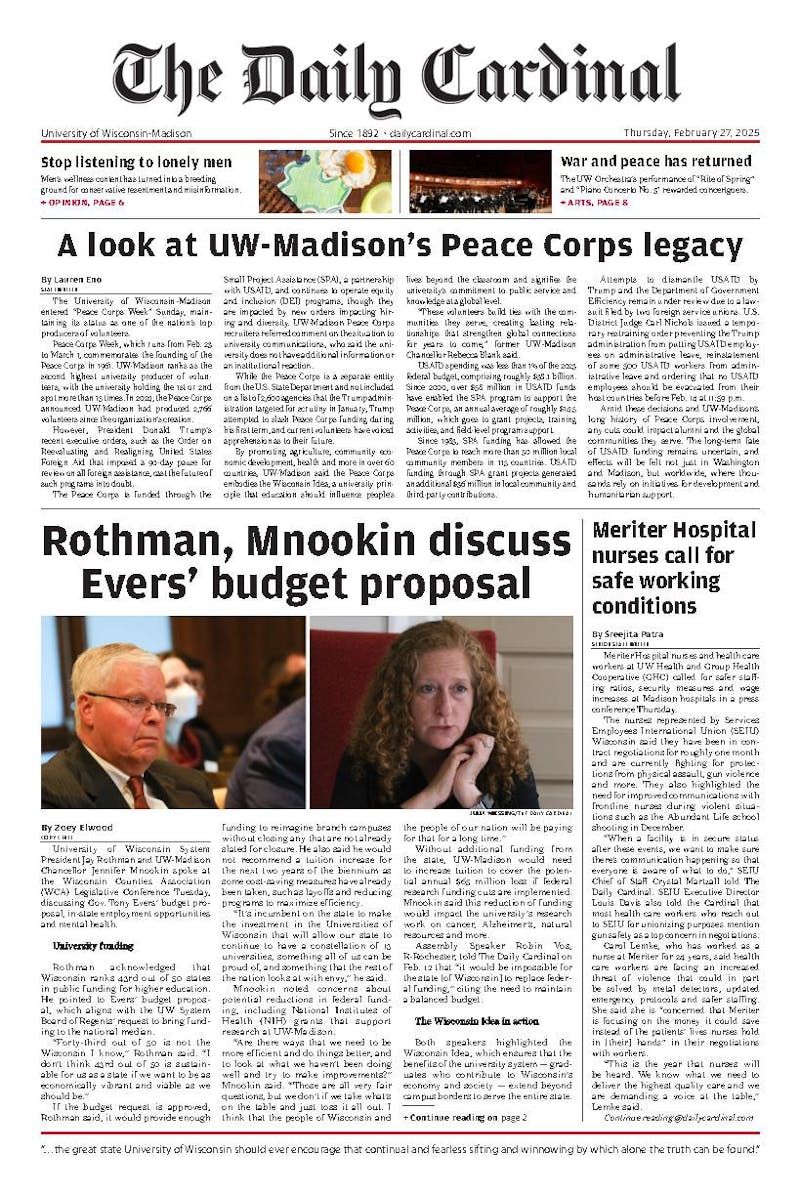Three women UW-Madison faculty members spoke about gender’s role in politics on a panel called “Gender In/Gender and the Election.”
Janet Hyde, Jane Collins and Jenny Higgins discussed various aspects of the topic at the talk, which was part of the “On the Issue” lecture series put on by Wisconsin Union Directorate Society and Politics.
Hyde focused on gendered stereotypes of different emotions and how society determines what is masculine and feminine. She used facial expressions as an example.
“Part of the feminine analysis or the gender analysis is that anger is a power in dominance emotion,” Hyde said. “Anger is stereotypically a masculine emotion.”
She intertwined these gender analyses and the roles they play in politics, asking, “What if Hillary Clinton showed that facial expression? How would people react?”
Hyde suggested that people do not like when others break the stereotype boundary within gender, so the response to Hillary if she were to be agentic, a masculine quality, would be negative.
Collins questioned what is at stake for women in the 2016 election. Finding it hard to answer this question herself, she broke her analysis down into two categories: law and policy issues at the federal, state and local level that will make a difference for working women, and issues that are pending in the court that will make a difference. She addressed forming policies such as “sick leave,” equity for part time workers and rights of pregnant workers.
Higgins touched on reproductive rights and wrongs, specifically abortion. She addressed the stigma attached to abortion and how politicians, typically Republicans, are pro-life due to religious reasons or the belief that it is simply not “the right choice.”
She provided data about contraceptives and abortions, and explained that economic status plays a role in who gets them and who uses them. She pointed out that health care does not usually cover abortions, therefore people, typically poor women of color, have to pay out of pocket, which often leads to more unplanned pregnancies.
“Even though we are getting better about providing contraceptives services and education in some ways to some groups, we’re getting worse at it with others,” Higgins said.





